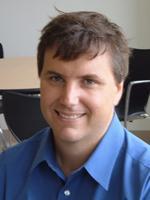
Among women in Chicago, African Americans and Hispanics were exposed to higher levels of ambient toxic heavy metals compared with non-Hispanic whites, and this increased exposure correlated with increased incidence of breast cancer, according to results presented at the 12th AACR Conference on The Science of Cancer Health Disparities in Racial/Ethnic Minorities and the Medically Underserved, held in San Francisco Sept. 20-23.
The AACR featured Rauscher’s work in a press release distributed to the media during the conference.
“While some prior studies have shown that exposure to toxic heavy metals in air pollution is associated with breast cancer risk, results have been mixed,” said Garth Rauscher, PhD, University of Illinois Cancer Center member and associate professor of epidemiology at the UIC School of Public Health. “Previous studies in this area have tended to include mostly non-Hispanic white women; our study included a more diverse population with extended follow-up, allowing time for breast cancer to develop.”
Rauscher, doctoral student Alpana Kaushiva, and colleagues examined ambient concentrations of 11 toxic heavy metals at the census-tract level among women enrolled in the Metropolitan Chicago Breast Cancer Registry between 2003 and 2007. Women were followed until the time of breast cancer diagnosis or Dec. 31, 2014.
A total of 211,674 women were included in this study; more than 25 percent of these women were African American, and almost 10 percent were Hispanic. After a mean follow-up time of 10 years, 6,579 women were diagnosed with breast cancer.
Read more.
Along with Rauscher’s research, the University of Illinois Cancer Center had several other members and staff exhibit their work at the AACR conference, either during an oral presentation or through poster-form.
UI Cancer Center Patient Brigade member Candace Henley, founder and chief surviving officer of the Blue Hat Foundation, served as a panelist that highlighted case studies of community-based initiatives – developed and implemented by teams of patients and researchers – working together to reduce and eliminate research and health disparities.
Greg Calip, PharmD, MPH, PhD, presented his work on racial disparities in health insurance status of U.S. adults with hematologic malignancies in states with and without Medicaid expansion. Calip’s analyses was from the National Cancer Database from the years 2007-2016.
The following research was presented during the event’s poster session:
Vida Henderson, PhD, PharmD, MPH, MFA – Research scientist, UI Cancer Center; Research Assistant Professor, UIC School of Public Health
- Building sustainable partnerships between cancer centers and safety net community hospitals to increase access to and quality of cancer care
- Promoting genetic counseling among African American women with hereditary risk for breast cancer
- Implementation of an integrated framework for a breast cancer screening and navigation program for under-resourced women
Kathy Tossas-Milligan, PhD, MS – Director, Office of Catchment Area Research and Data Science
- Hidden Figures – An example of using machine learning to prioritize cervical cancer screening outreach
Karriem Watson, DHSc, MPH, MS – Director, Office of Community Engaged Research and Implementation Science
- Community based colorectal cancer screening initiative to address colorectal cancer disparities among African and Sexual Minorities on the South Side of Chicago
Yamila Molina, PhD, UI Cancer Center member; Assistant Professor, UIC School of Public Health
- Empowering Latinas to obtain breast cancer screenings: Comparing interventions’ behavioral and network effects
Nita Mukand, winner of UI Cancer Center’s Pfizer Fellowship
- Racial differences in the risk of second primary gynecologic cancers following chemotherapy for malignant ovarian tumors: Asian subgroups in the United States, 2000-2016
Jenna Khan-Gates, PhD – Research Specialist at the UI Cancer Center
- Validating a population weighted areal interpolation method to estimate cancer rates across differing geographies
If you are speaking or presenting your work via poster-form at an upcoming conference, we would like to hear from you, so please send us the information.
